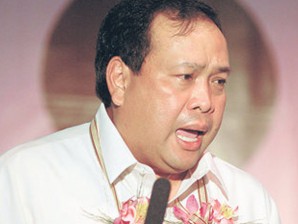Lawmakers want Aquino to arbitrate on RH dispute

House Majority Leader Neptali Gonzales II
MANILA, Philippines — President Benigno Aquino III will need to make a firm stand on the controversial Reproductive Health Bill which has recently intensified debates at the House of Representatives.
In a media briefing Thursday, House majority leader Neptali Gonzales II admitted that although it will be difficult for the President to issue an order which would impose on lawmakers’ religious beliefs, “we really need somebody who will arbitrate [on the dispute].”
Long-standing debates have hampered developments on House Bill 4244 at the plenary with hardliners butting heads, the pros in trying to open the measure to amendments and the antis in halting such efforts. Earlier, privilege speeches by lawmakers opposing the termination of debates on the RH Bill slowed down its developments.
Asked whether Aquino should issue a marching order for legislators to pass HB 4244, Gonzales said, “Not only a marching order, we hope he’ll get tough on this.”
He said lawmakers “will have difficulties” in resolving the issues on the RH Bill. While maintaining independence, he said his colleagues “really need somebody who will arbitrate.”
Article continues after this advertisement“In my stint as floor leader, this is the first time I’ve seen a bill that has divided the house,” he told reporters. He however admitted as well that it will be difficult for Aquino to “impose” on the religious beliefs of lawmakers.
Article continues after this advertisementCavite Representative Joseph Emilio Abaya, secretary-general to the Liberal Party said the President is tackling the issue judiciously, explaining the RH bill is not like an impeachment proceedings because “certain other non-political issues are involved.”
Reacting to reports that an informal technical working group will be created to discuss acceptable amendments to the RH Bill, Gonzales said that the group could not be called a TWG (technical working group) since bishops are being eyed to join the talks. “Bishops are not part of the House.”
The said the panel will be composed of representatives from the Senate, the Executive, proponents of the bill and its opposers, and some members of the Catholic Bishops Conference of the Philippines. Gonzales said that they wanted to speak with the bishops in order to understand the Church’s position.
“Considering we will take up the budget for two weeks and then go on a two-week break, (we want) to take advantage of break and talk to them. At least we will be informed what their position will be,” he explained.
Lawmakers want the “opportunity to hear the bishops’ side. Maybe they can convince the side of lawmakers who are even stricter than the church,” said Gonzales.
Lawmakers supporting the passage of the RH Bill argued that the use of contraceptives is “the very heart of the bill” but they are willing “to limit the application as a compromise.”
Part of the compromise being discussed is to apply a provision which limits the measure to “women belonging to the marginalized households.” He said that the suggestion came about after hearing that certain bishops were not “principally against the use of contraceptives [but were more against] the government’s spending [to promote the use of contraceptives].”
But for hardliner lawmakers against the RH Bill “still, in any form that you spend and promote for a modern method [of family planning], then that’s already an affront to the Catholic Church,” said the majority leader.
Whether Aquino would call on lawmakers to push for the passage of the RH Bill, Abaya said: “I couldn’t assess if the President would do so. Eventually it will be an individual call.”
“It will boil down to the individual congressman,” he added.